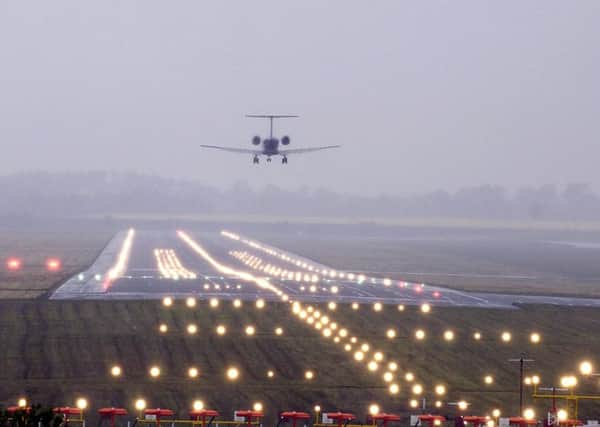Alastair Dalton: Air passenger duty takes centre stage again


It’s an obviously populist move, in addition to the claimed benefits to the Scottish economy if more people fly. Airports and airlines like to give the impression of presenting a united front in campaigning against the tax.
They applauded Scotland’s plans on Monday, while days later denounced the Chancellor for failing to follow suit in the Budget.
Advertisement
Hide AdAdvertisement
Hide AdBut the Scottish Government’s launching of a consultation on halving APD within around five years is an important opportunity for all of us to consider the situation more fully.
First of all, are all airlines as bothered about it as is made out? I’m sceptical.
Despite the clamour from the antis, I’ve been surprised by the number of senior airline executives who have told me it is not an issue that has affected their Scottish expansion plans.
That includes two Middle Eastern carriers, Etihad and Qatar, who are disproportionately affected by APD because of the length of their routes from Scotland.
I was even more taken aback by one of the most senior people at an airline with a major presence in Scotland who said the same.
Such is the sensitivity of the issue that one of his aides then tried - unsuccessfully - to persuade me not to report that, while not disputing what he had said.
Next, there’s the claim from some airlines that they would massively expand in Scotland if APD is halved. EasyJet – which already carries the most passengers here – said it expected to increase flights by around 30 per cent.
This is not the first time the carrier has made such assertions, and I’ve put it to them before that the effect of reducing APD will be difficult to prove because they are continually expanding anyway.
Advertisement
Hide AdAdvertisement
Hide AdI’ve also asked how many more flights they would be operating if APD had already been cut, and they have been unable to answer.
Which brings us on to the wider picture. Scotland’s two busiest airports, Edinburgh and Glasgow, are firmly back into their pre-recession boom mode, with passengers on international flights from the capital up nearly one third last month. Glasgow will soon join Edinburgh in returning to record numbers.
If APD is such a brake on expansion, why is this happening? And when folk in places like Germany are thinking about a weekend break in Edinburgh, is the thought of a paying an extra £13 in APD really making them decide not to come, or fly elsewhere?
From my perspective, there are so many potential add-ons when booking a flight, from baggage to seat reservations, APD is hardly a deal breaker. Add in the rest of the cost of your trip, and it’s an even smaller consideration.
But if it is such an important factor, won’t that also make it more attractive for Scots to holiday elsewhere?
This is not an argument about the merits of flying or its environmental consequences – but who will really gain from cutting APD.
The Scottish Government is forever blaming every cut it has to make on getting less money from Westminster. So we should think hard about whether it’s worth having to find another £309 million – the amount raised in APD in Scotland in 2014-15.